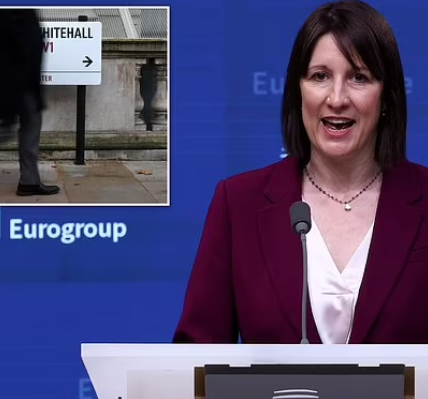Announcing his ‘Plan for Change’, Sir Keir Starmer was uncompromising about the need for civil service reform.
Too many in Whitehall are ‘comfortable in the tepid bath of managed decline’, he said, and must significantly improve their performance.
Laying out Labour’s strategy (such as it is) for shaking up the state, his senior Cabinet Office minister was distinctly less combative yesterday.
Poor Whitehall performance was down to ‘good people caught in bad systems’, said Pat McFadden.
Rather than giving them a lecture on upping their work rate, he called on civil servants to be more ‘creative’, and adopt a ‘test and learn’ approach and embrace the nimbleness and flexibility shown by start-up companies in the private sphere.
These are laudable aims, of course, but how are they to be achieved when much of Whitehall refuses to spend more than two or three days a week in the office?
They regard working from home as a right and their output has plunged as a result.

Announcing his ‘Plan for Change’, Sir Keir Starmer was uncompromising about the need for civil service reform. Too many in Whitehall are ‘comfortable in the tepid bath of managed decline’, he said, and must significantly improve their performance

Laying out Labour’s strategy (such as it is) for shaking up the state, his senior Cabinet Office minister was distinctly less combative yesterday. Poor Whitehall performance was down to ‘good people caught in bad systems’, said Pat McFadden (pictured)
Their productivity is 8.5 per cent lower than pre-pandemic, yet public sector workers were awarded an above-inflation pay rise in July – no strings attached.
Meanwhile, Whitehall headcount has risen every year since 2016 and is nearly 100,000 higher than before Covid.
It seems there are more and more people doing less and less work.The last government pledged to cut numbers back to pre-pandemic levels, but Labour has now ditched that pledge.
Interestingly, it is Mr McFadden’s own department, the Cabinet Office, which has seen the biggest staff increase, rising by nearly 200 per cent since 2016.
There’s nothing wrong with his idea of a £100 million ‘innovation fund’ to find new ways of fixing old problems.
But if he truly wants to revitalise Whitehall, he must first restore its work ethic. Time to pull the plug out of that tepid bath.
Into the unknown
One of the many unanswered questions following the sudden fall of Bashar al-Assad is what happens now to the 50,000 former IS militants currently held by Kurdish forces in north-east Syria.

Ex-MI6 chief Sir Alex Younger warned yesterday of a ‘serious spike’ in the threat posed to this country by foreign and home-grown extremists that could be inspired by a resurgence of Islamic State. Pictured: : A masked Islamic State soldier poses holding the ISIL banner somewhere in the deserts of Iraq or Syria

As Foreign Secretary David Lammy (pictured) reminded the Commons yesterday, HTS remains a proscribed terror organisation
If these brutal jihadis are released or fight their way out of the camps, the repercussions could be deadly in Europe as well as the Middle East.
Ex-MI6 chief Sir Alex Younger warned yesterday of a ‘serious spike’ in the threat posed to this country by foreign and home-grown extremists that could be inspired by a resurgence of Islamic State.
We know from the atrocities at London Bridge, Manchester Arena, and elsewhere how murderous and hard to predict these fanatics can be.
The current UK terror threat is at level 3 – ‘substantial’ – but may well rise in the light of unfolding events. Security services, police and the Border Force must be extra-vigilant.
The world also waits to see what kind of regime the rebels will create in Assad’s place. The most prominent group, Hayat Tahrir al-Sham (HTS) is an offshoot of al-Qaeda, so its leaders are unlikely to be fans of Western democracy.
Sir Keir Starmer announced £11 million in British aid for Syria yesterday.
We must be very careful where that money goes.
As Foreign Secretary David Lammy reminded the Commons yesterday, HTS remains a proscribed terror organisation.
Jubilation over the fall of a tyrant should not blind us to the risks of what comes next. As Mr Lammy put it: ‘This is a moment of danger as well as opportunity.’



